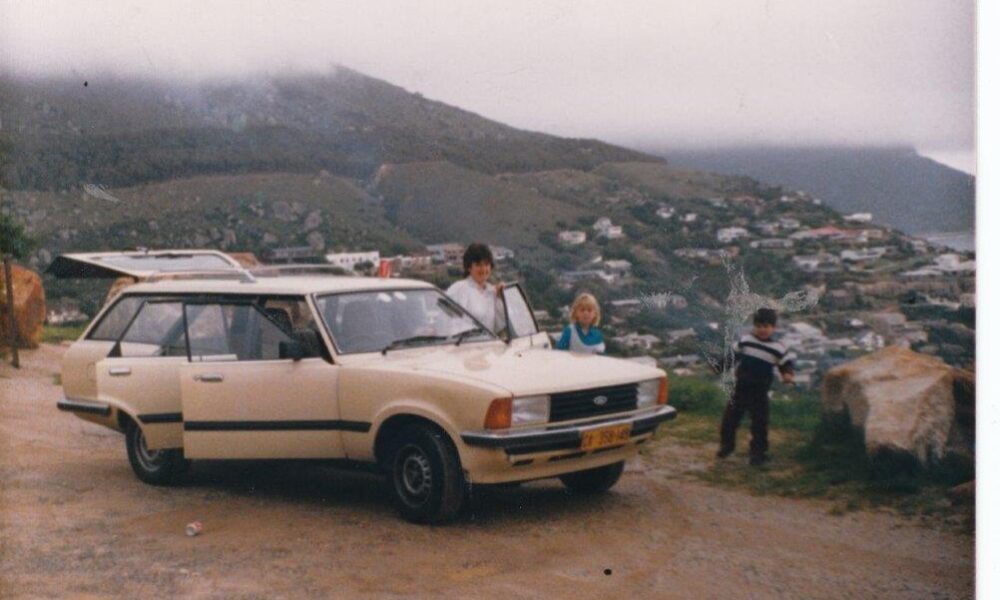Featured Item
Torah smuggled out of Zimbabwe a ‘once-off event’

“It was a crazy thing to do,” says Gilad Stern, reflecting on the decision he made three decades ago, to smuggle a Torah out of Zimbabwe. The story, which he says he “hardly thinks about”, recently resurfaced in conversation with friends. Stern reflected on the experience with the SA Jewish Report.
The Torah had been used by the community in the town of Gweru (formerly Gwelo), which had since declined. Stern heard of Moshe Moshkowitz, whose Menorah organisation rescues items of Jewish significance from defunct communities and brings them to Israel for safety and use in communities around the country.
“There were no Jewish people left there, but in Israel there was a need for Torah scrolls,” says Stern. There were severe restrictions on the transfer of financial assets out of Zimbabwe, and it was clear that permission to export an item of such monetary value would almost certainly have been denied.
He and Rabbi Eugene Dushinsky of Cape Town told Moshkowitz about the Torah, and so, a daring plan was put into action to get it out of the country. “We decided to use the principle of ‘hiding something in plain sight’,” remembers Stern. “Looking back, I can’t believe we did it. If things had gone wrong…” he shudders to think about the ramifications for his family. And yet, back then, he was fearless and took on the mission without a second thought.
Stern’s wife, Micky, is originally from Zimbabwe, and had left when she was a teenager, so this return holiday was to be a “roots trip” of sorts, says Stern. “We travelled in our car from Cape Town, which was a wonderful way to holiday. Our four children, aged two to seven, were with us. Zimbabwe was in a better state than it is today. We heard about the Torah, and felt like it was worth trying [to get it out].
“Micky said that when she was growing up, the aim was to get money into South Africa. Her father would hide the cash among the oranges in the backseat, and it worked every time. The idea was to make the article look to be of low value and to be the least significant thing: hiding in plain sight.”
They decided to do the same thing with the Torah. “We took off the cover, and hid it among our clothes. Then we put the Torah with the chaos and bedlam of the children’s toys, games, and mess at the back of our station wagon.” The Torah was a medium-sized one, and they unrolled it partially and tried to make it look like a toy. They didn’t tell their kids anything, not wanting their children to blurt out the information.
“We knew it was an appalling way to treat a Torah, but like pikuach nefesh [preservation of human life] on Shabbat, it was for the greater good of Jewish life,” says Stern. They had to travel through a number of checkpoints and then across the border. If they were discovered to be escorting this highly valuable item out of the country, it could have been confiscated, and worse, “I have no doubt we would have been arrested,” says Stern.
“The guards at the border were sadistic and cruel,” he says. On the way into the country, he wrote his place and date of birth in the wrong order and was sent to the back of the queue for another two-hour wait.
But this time, all went smoothly. “It looked completely innocuous,” he says. “As soon as we got across, we felt fantastic – “’We did it!” – and then guilty: We immediately put the Torah back into its correct state.” In Cape Town, it was handed over to their friend, Roy Sher, who took it to Israel. It was given to Yatir, a settlement in Drom Har Hebron, where it’s still used to this day. Though Stern is generally left-wing in his political views, he has no opinion about the Torah’s final home.
Meanwhile, the place that the Torah came from – Gweru – had an airforce base that was used by the British as a training centre for fighter pilots, according to Stern. It was also the place that Ezer Weizman learned to fly, including crashing his plane once during training. Weizman then went on to become chief of the Israeli Air Force, and later president of Israel.
Reflecting on the experience of smuggling out the Torah, Stern says, “The ends justify the means. We live in a time when many people have high standards of ideological purity. But I think the lesson is that we live in a complex world, and sometimes we have to make decisions for the greater good.”
He’s now double the age he was then, and says, “We were both young and stupid. Me so more than her! I wouldn’t do it again. It felt like a once-off thing. I’m definitely more fear-averse now, but even then, I wouldn’t have repeated it. I have no doubt it was dangerous.”